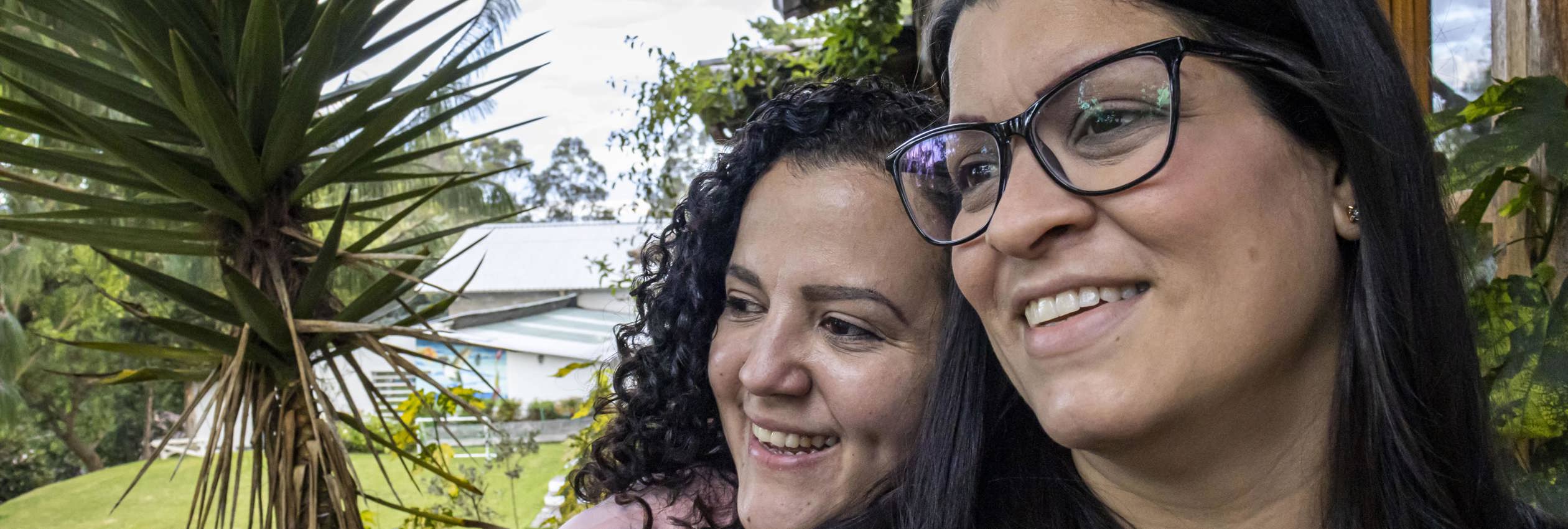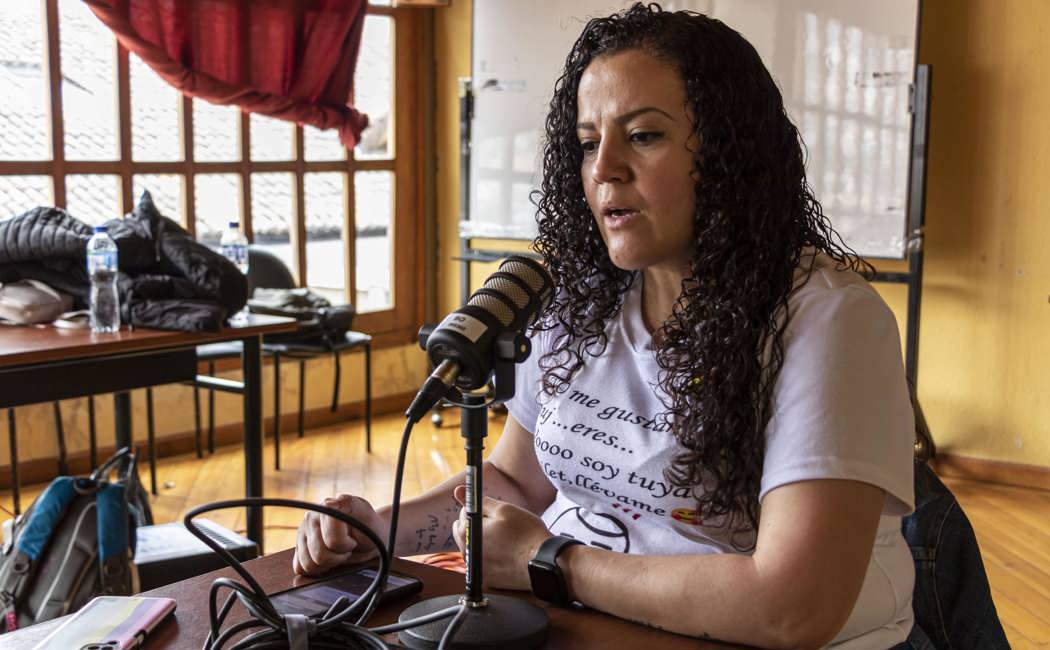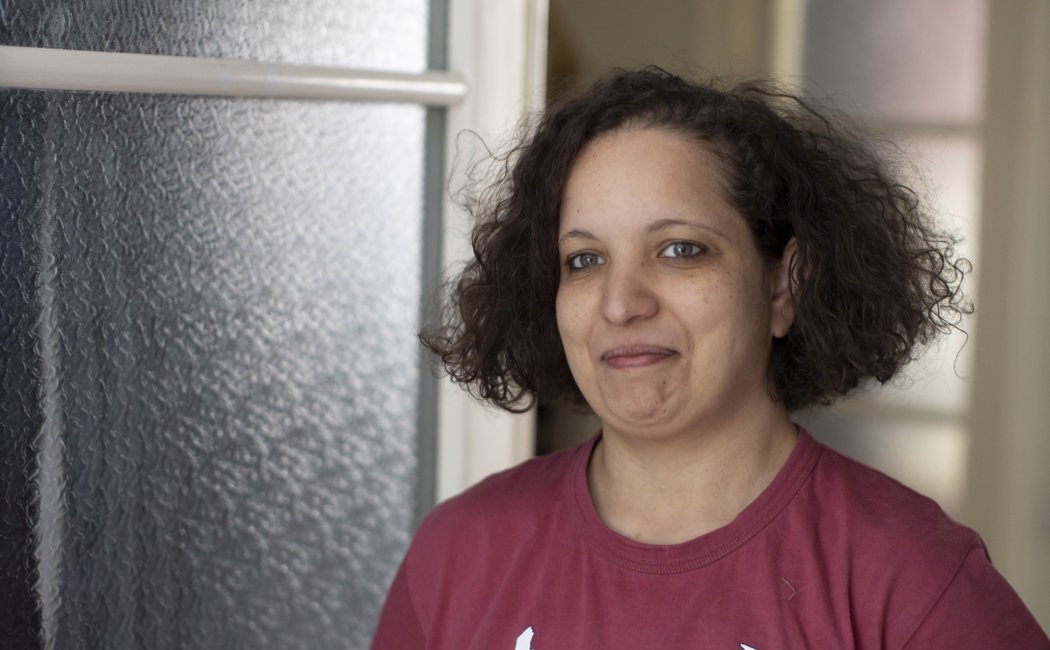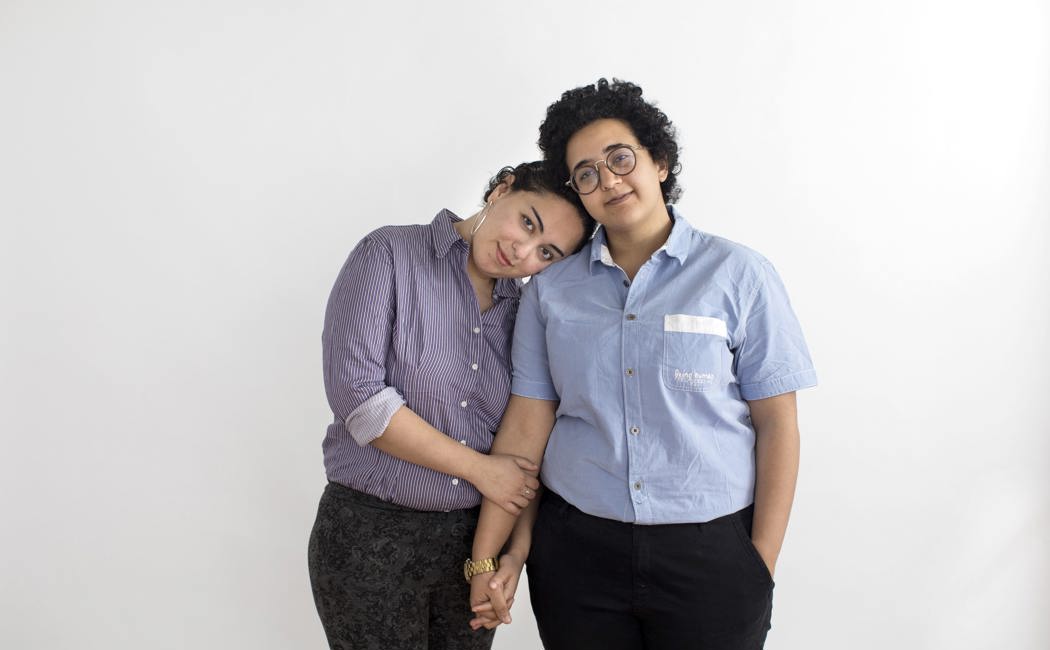Venezuelan mother Yeraldine was in a long and tumultuous marriage to a man before meeting her current partner, Zailet, five years ago. Yeraldine says the decision to come out was an easy one, despite the challenges LGBTQI+ people face in Latin America.
“I practically jumped out of the closet,” she says. “It didn’t matter what anyone said. Once my children accepted me, that was more than enough.”
While Yeraldine and Zailet had the children’s full support, they faced serious ramifications in the community, including being laid off – they worked as salespeople at the same store – as well as sexual harassment from a landlord that forced them to give up the apartment they shared.
“We didn’t have food. We didn’t have jobs. We didn’t have a place to live,” Yeraldine says.
No longer able to afford the medications she needed to treat a chronic medical condition, Yeraldine fled with Zailet and sought safety in Ecuador. She left her two teenage children behind with relatives, sparing them the difficult journey.
The couple has now settled in Quito and, while they have found some stability, they have continued to endure discrimination. Yeraldine said she and Zailet had to pretend to be cousins in order to sign a lease on an apartment.
“The LGBTQI+ community often has a difficult time finding spaces where they can feel safe throughout the cycle of displacement,” says Giovanni Bassu, Representative for UNHCR in Ecuador.
“They face greater barriers in accessing basic rights and services, such as education, healthcare, housing or employment.”
Through Redes Comunitarias, a UNHCR project giving refugees and migrants the tools they need to become community leaders, Yeraldine has emerged as an unofficial spokesperson for the LGBTQI+ cause.
She has helped produce podcasts, videos and events aimed not only at teaching displaced LBGTQI+ people about their rights but also making their host country a more accepting place for all refugees and migrants, regardless of their sexual orientation.
Amani

















 Worldwide
Worldwide


